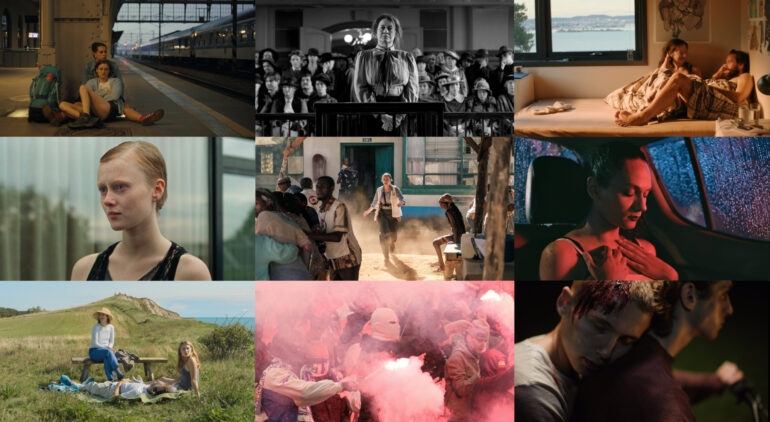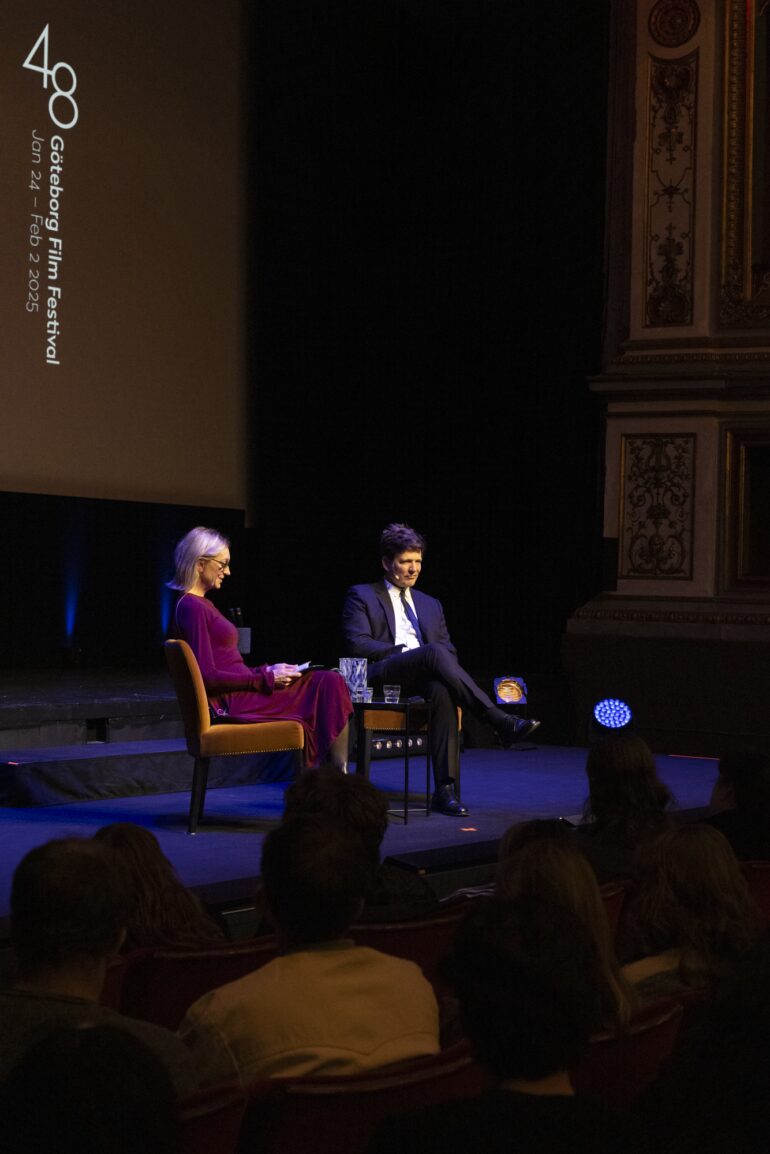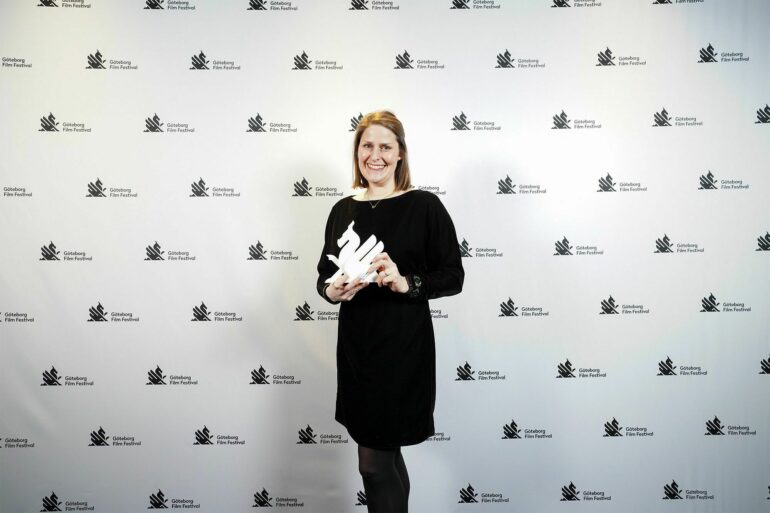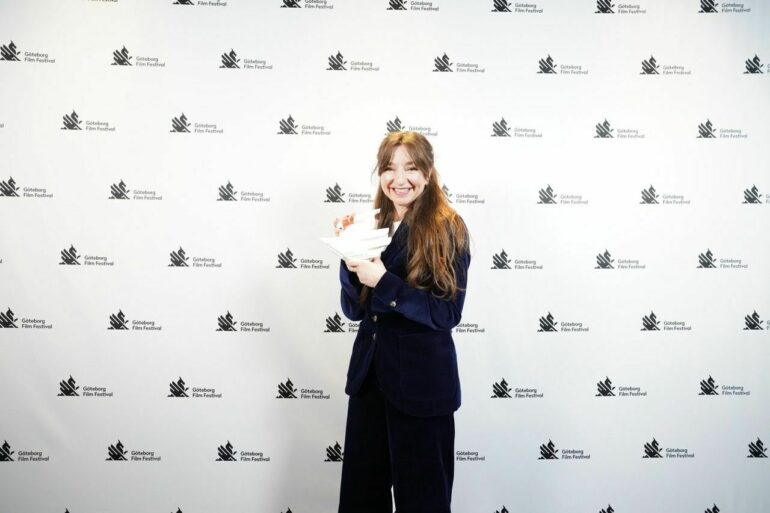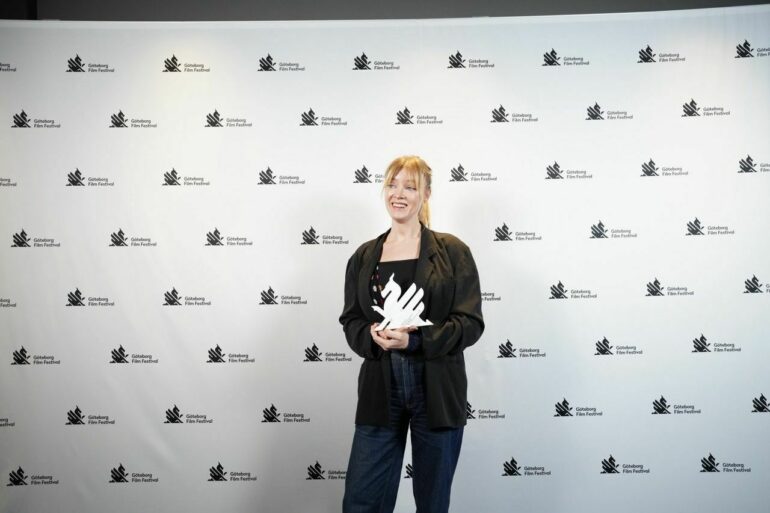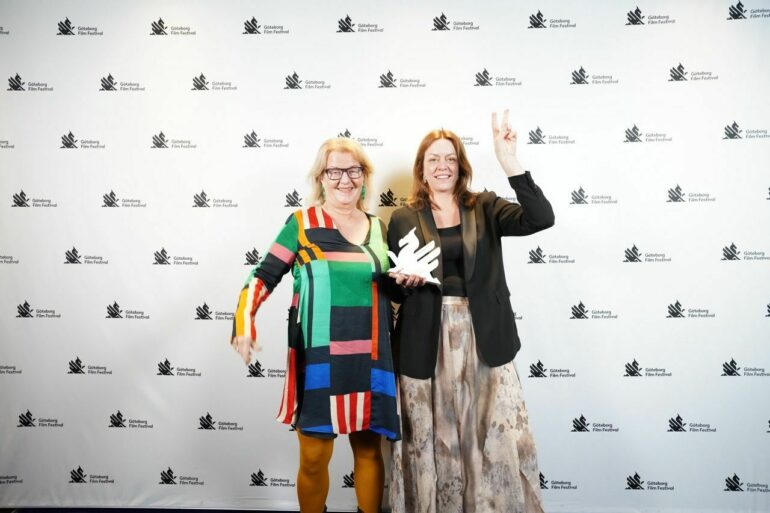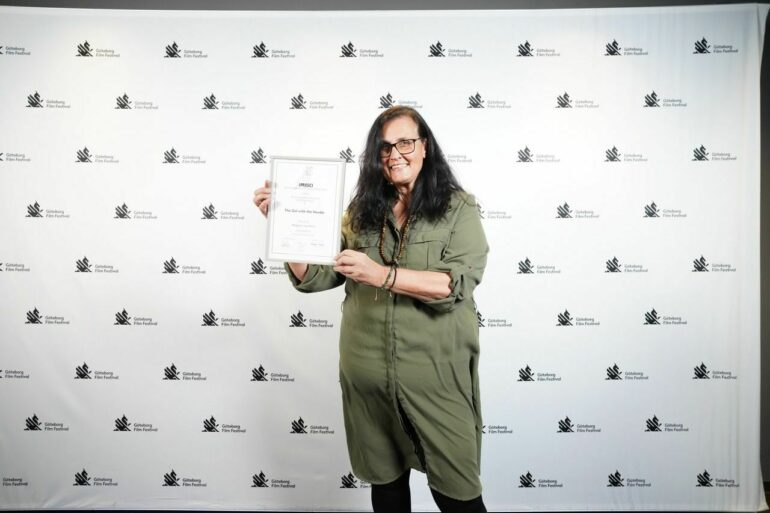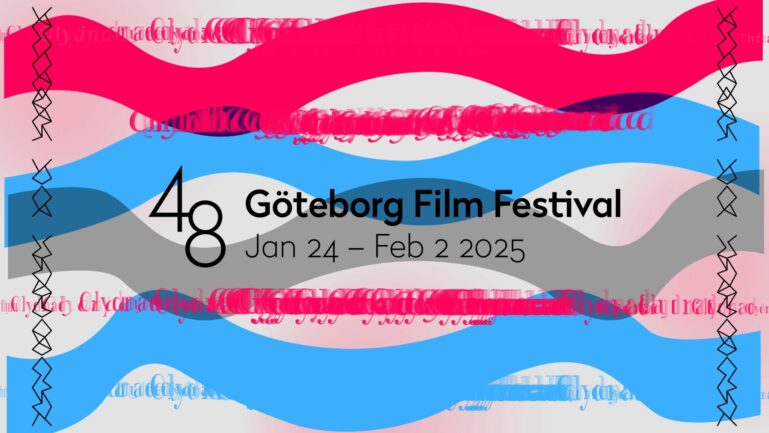Written by: Jan Lumholdt
05.02.25
Heated politics, 24 Nordic premieres, 2400 delegates, an Icelandic Dragon Award winner and promises of the future. NFTVF wraps up with the heads of the festival.
“I know that many Ministers of Culture before me have been wanting to present themselves as the industry’s best buddies and main government spokespersons.”
“But I know, in any case, that this is not the task of politics.”
As per faithful Göteborg Film Festival tradition since many years back, the gala opening night kicks off with a speech from the Swedish Minister of Culture. This year wasn’t different, and yet it was. The current Minister of Culture, Parisa Liljestrand, a member of the liberal-conservative Moderate Party, certainly kicked, and – according to some – right below the belt of a film industry in veritable crisis of severe underfunding.
While Liljestrand went through her talking points regarding the unsustainability of a state-wide film policy, the fact that the film industry per definition is a commercial business (“everyone knows this”), her unwillingness to demand the citizens’ tax money just because there are those who lack the stamina to stand up of their priorities, the room became gradually uneasy with booing being heard. After announcing a new directive in doubling down on illegal IPTV, she declared the festival open and wished everyone “a wonderful evening”.
Pia Lundberg, the newly appointed artistic director was, by her own admission and not alone in this, “surprised” by the speech. After having completed her first festival edition this Monday, she could look back on a couple of rather strange days.
“The fact that she did the speech in Göteborg certainly put the festival on the map, but it also stole some of our thunder. I had to spend the entire first weekend as well as the beginning of the following week making media statements on the minister’s outburst.”
More film political news involving Pia Lundberg is due shortly, as she is part of the expert committee in connection with the government inquiry being conducted on national film policy. The results will be presented March 4th, a possible crossroad in Swedish cultural politics, eagerly anticipated across the industry.
“The report will be loaded with facts and information. I hope it will be read and reacted to and engaged in. We certainly need new initiatives regarding the financing of Swedish film, and we’re up against a lot of challenges.”
While Pia Lundberg has been busy talking politics and eventually also cinema artistry with the likes of Thomas Vinterberg, Julie Delpy, Mohammad Rasoulof and other distinguished guests in a series of appreciated master classes, her colleagues Josef Kullengård and Cia Edström have headed the Nordic Film Market and TV Drama Vision industry sections through a very lively year. Last year’s relocation to the Clarion Hotel Draken has proved fortunate; here, the delegates have found a natural and smooth-running hub.
“We feel the appreciation, and attendance just keeps going up, and has done so every year the last three years”, says Kullengård, who counts almost 2400 delegates from 54 countries in the 2025 edition (compared to about 1700 in 2022). The formula, he thinks, is the varied programme, this year presenting 68 feature film projects at Nordic Film Market and 61 series at TV Drama Vision."
“In this respect, we provide the largest marketplace in the Nordic region for professionals looking for new projects but also a market of knowledge, where we try to identify the many changes happening within the industry. The industry is going through hardships these days, especially on the feature film side, with less money within the system and struggles with audience outreach, a challenge that both producers and distributors face in every aspect of their work.”
“What we’ve aimed for in general with this year’s edition is to inspire and to provide hope and encouragement for future collaborations, also encouraging new types of constellations. At the end of the day, we’re all in the same business, the same boat, hopefully navigating ourselves through whatever challenge we may face. And we all want artistically and commercially interesting films and series that can address different audiences. Here, we aim for a platform for conversation, a marketplace that can play a meaningful role, relevant and close to the industry.”
A generally high Nordic quality, both in the festival programme and among the industry projects, has been easily discovered by audiences and industry delegates alike, in quality as well as quantity. The festival programme offered 24 Nordic world premieres, among them several strong debut features like Kevlar Soul (Kevlarsjäl) by Maria Eriksson-Hecht and Live a Little (Leva lite) by Fanny Ovesen, two young Swedish directors with promising future filmographies. Both were entered in the Nordic Competition “against” established A-festival favourites like Swedish Magnus von Horn’s Oscar-nominated Danish Cannes entry The Girl with the Needle (Pigen med nålen), Norwegian Dag Johan Haugerud’s Venice-playing Love (Kjærlighed) and yet another Cannes favourite, Icelandic Rúnar Rúnarsson’s When the Light Breaks (Ljósbrot).
In the end, the Dragon Award for Best Nordic Film went to When the Light Breaks and the price from the international federation of film critics (FIPRESCI) to The Girl with the Needle. Swedish director Eirik Svensson’s Safe House received The Audience Award, while Norwegian Andrea Bræin Hovig won the Dragon Award for Best Acting for her performance in Haugerud’s film Love. All four films are supported by Nordisk Film & TV Fond. Danish writer-director Thomas Winterberg received the Honorary Draken Award.
Documentary highlights include Ragnhild Ekner’s panoramic epic about football fans all over the world, Ultras, and Victoria Verseau’s Trans Memoria, that won the Best Nordic Documentary Award. Starting out right here in Göteborg and moving out across four continents, the film itself should do some extensive travelling in the time to come.
Pia Lundberg highlights two Danish first features in the Nordic Competition, My Eternal Summer (Min evige sommer) by Sylvia Le Fanu, which won the Special Mention, and Sauna by Mathias Broe, while Josef Kullengård goes for an upcoming Finnish title in the Discovery Co-Production Platform, You Crazy Thing by Miia Tervo, which also won the Film Finances Scandinavia Award, which includes €15,000 in development support.
“Overall, it’s very reassuring that we have all these strong creators and producers from the Nordic region, visible both in the festival programme and at the film market”, says Kullengård. “We’ve had a great year.”
His perhaps greatest 2025 highlight has been the brand new NORD pitch initiative, consisting of film students, newly graduated or just about to graduate, from the national film schools of Denmark, Norway and Sweden, who all came to Göteborg to present their projects.
“They’ve gone through a year-long programme, where they’ve been grouped together with fellow students from the neighbouring countries, groups that then devise their joint film projects. Witnessing their presentations was quite a mind-blowing experience that just filled me with reassurance. Here’s our strong new generation, full of devotion and great stories. Here’s a lot to look forward to.”
Pia Lundberg, similarly, burns for the short film competition for often brand new filmmakers, Startsladden, a faithful Göteborg tradition since many years back.
“That day is constantly fantastic. There’s expectation in the air like flickering butterflies. The full crews are often present, it’s often the first film they’ve ever shown to an audience – a huge audience at that – and the films are great! The growth of talent here is immense, as well as the lust to experiment and the curious gaze. I really hope that some of them one day will make full features. They really provide the future with great promise.”
For all the Göteborg Film Festival winners: CLICK HERE.
For takeways from TV Drama Vision: CLICK HERE.
